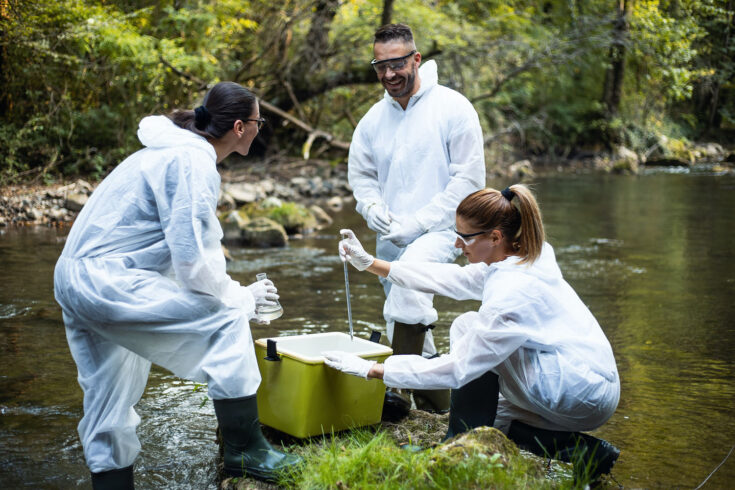Ten innovators across all career stages have been awarded a total of £1.5 million through the Natural Environment Research Council (NERC) knowledge exchange (KE) fellowships.
The KE fellowships are designed to enable the sharing, flow and translation of knowledge and expertise between NERC-remit researchers and the research sector, businesses, policymakers and the public.
Fellows are awarded up to three years support, enabling them to develop their skills and to deliver impact that can be felt across society and the economy.
NERC is committed to create and sustain a positive, diverse and inclusive environment for its research community. The KE scheme supports job shares whereby two fellows are able to share the responsibilities and duties under one project.
Areas of innovation
The new fellows will drive forward environment science in a number of disciplines across NERC’s remit, including:
- atmospheric physics and chemistry
- climate and climate change
- ecology, biodiversity and systematics
- geosciences
- marine environments
- polar sciences
- science-based archaeology
- terrestrial and freshwater environments
Delivering new knowledge and impactful research
Professor Susan Waldron, Director for Research and Skills at NERC, said:
I am delighted that NERC is able to support this new cohort of innovators through our knowledge exchange fellowships, helping them to develop their skills and giving them the freedom to explore their innovative ideas.
To enhance the impact and drive forward environmental research we must exchange expertise and knowledge. The fellows announced today will have the opportunity to collaborate with peers across the UK to deliver new knowledge and impactful research that will benefit society and the economy.
Investing in talent
The 10 funded fellows are:
Dr Xiaojing Li, University of Birmingham
Precision environmental health
Professor Carly Stevens, Lancaster University
Building partnerships to conserve limestone pavements
Professor Dominic Kniveton, University of Sussex
Protecting children’s health through forecast based anticipatory action
Mr David Johnstone, The University of Manchester
The use of geothermal energy for the decarbonisation of heat in Greater Manchester
Mr Jonathan Hardwick, University of Exeter
Advancing quality and understanding of wave conditions in new aquaculture environments
Dr Ross Maidment, University of Reading
Drought risk information for the African finance sector
Dr Alex Henshaw and Dr Gemma Harvey, Queen Mary University of London
Job share: embedding environmental and geospatial science in nature recovery and rewilding
Dr Andrew Daymond, University of Reading
Development of a knowledge exchange network for sustainable cocoa farming
Dr Richard Pope, University of Leeds
Air-pollution innovation in regional-forecasts utilising operational satellite applications and technologies

